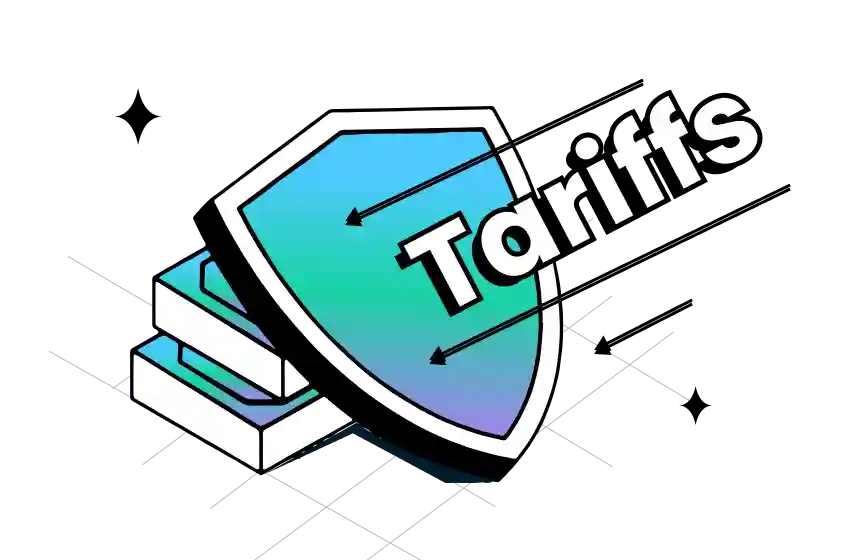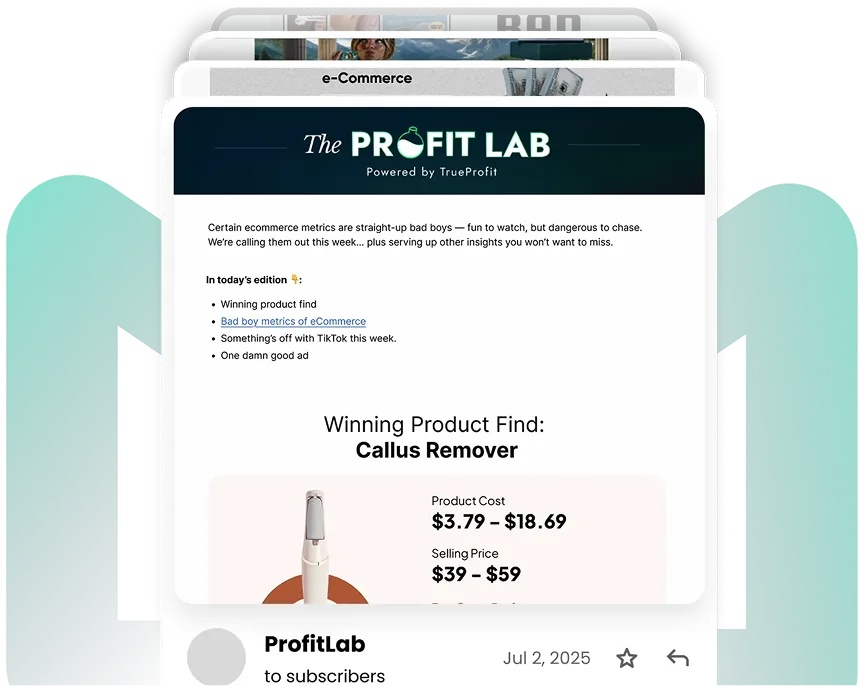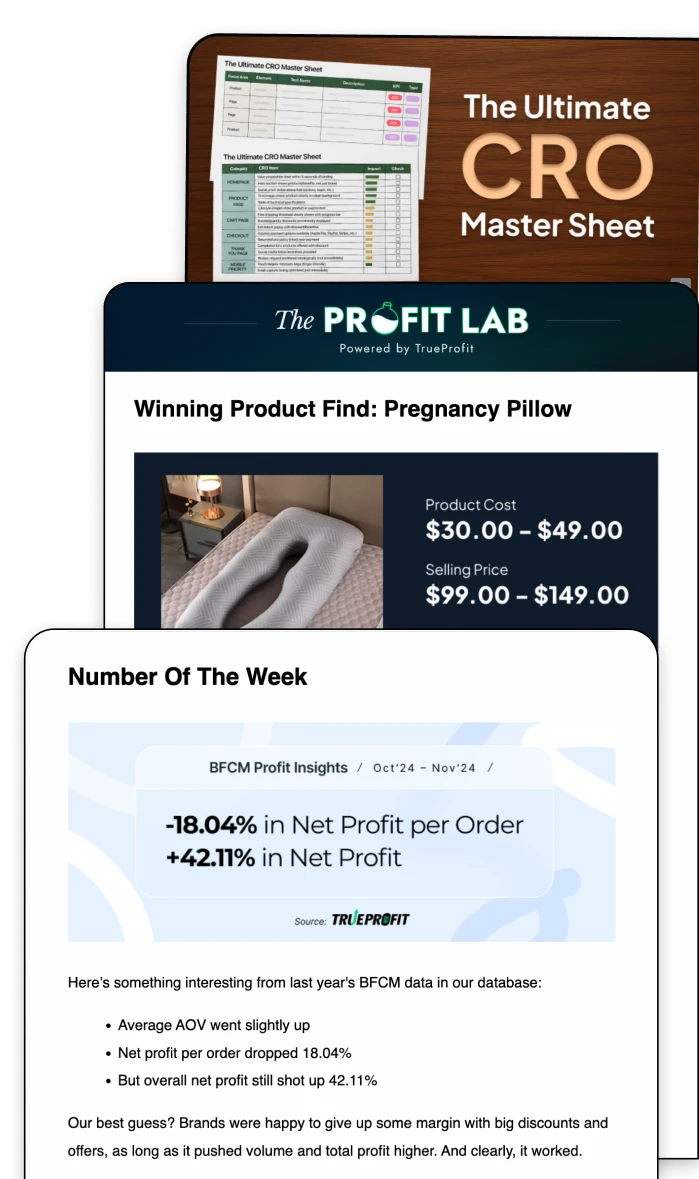7 Ways To Protect Profit from Tariffs

For small and mid‑size e‑commerce businesses, maintaining profits under tariffs is crucial. But staying profitable under shifting trade policies is possible - with the right approach to protect profit from tariffs.
This guide breaks down seven practical, actionable ways to handle the possible new profit margins and US tariffs.
In this blog:
1. Calculate Profit Margins After Tariffs and Duties
If you’re not adding tariffs and duties into your cost breakdown, you’re missing the full picture to protect profit from tariffs. These extra charges can seriously eat into your profits; especially if you're selling low-margin products.
Here’s what to include when calculating profit:
- Product cost (from supplier)
- Shipping and handling fees
- Tariffs and customs duties (based on product and country of origin)
- Currency conversion charges (if buying in foreign currency)
- Payment processor and platform fees (Shopify, PayPal, etc.)
Use profit tracker tools that automatically track these for you, so you don’t have to guess. Once you know your true profit per sale, you can confidently decide which products are worth keeping, which need a price update, and where you’re actually making money.
2. Adjust Product Pricing to Maximize Profit Under New Tariffs
Rising costs don't always mean reduced margins—if you adjust your pricing strategy effectively. While some customers may be sensitive to price changes, slight increases may be acceptable if you communicate the value clearly. To learn more, check out our article on how tariffs affect business.
Simple ways to adjust pricing:
- Raise the price of tariff-affected items slightly (e.g., $28.99 instead of $27.50)
- Test different price points to see where customers still buy
- Highlight product value in your descriptions so small increases feel justified
Experiment with A/B testing to find the sweet spot where customers still convert, and margins stay healthy. Customers are often willing to pay more if the value is clear. Even small increases can help protect profit from tariff costs while keeping sales stable.
3. Replace High-Tariff Products with Low-Duty Alternatives
Some items carry heavier duties than others. For dropshippers, understanding dropshipping profit vs tariffs lets you swap high‑duty products for similar,
Small changes like switching a metal item to a plastic version, or changing product size or packaging can shift a product into a lower-duty category. This works especially well for dropshippers who have flexibility in their catalogs.
To carefully tariff-proof your business, check out our friendly guide on how to prepare for tariffs.
What to do:
- Review your catalog and flag products with high tariff rates
- Identify similar alternatives that fall into different HS codes with lower tariffs
- Use tools like the U.S. Harmonized Tariff Schedule to compare duty rates quickly
4. Source Products from Countries with Lower Tariff Impact
Tariffs vary based on the country your product ships from. If you’re sourcing from a high-tariff region like China, consider exploring alternatives. Switching a few key products to lower-tariff sources can meaningfully boost your profit margin without changing your store’s niche or branding.
Try this:
- Look at suppliers in places like Vietnam, India, Bangladesh, or Turkey
- Ask your current supplier if they have warehouses in other countries with lower tariff impact
- Compare total landed costs (not just item price) when evaluating new suppliers
5. Use Product Bundling to Offset Tariff Costs
When tariffs raise per-item costs, bundling can help you offer more value while protecting your profit. This increases your average order value and makes the tariff costs feel more manageable - both for you and your customers. Check out our article on ecommerce pricing strategies to get more ideas.
Bundling ideas:
- Combine 2–3 low-cost items into a “Starter Kit” or “Essentials Pack”
- Offer a discounted add-on for customers who’ve already made a purchase
- Pair a high-margin product with a tariff-heavy item
6. Work With Suppliers Who Offer Tax-Inclusive Pricing
Some suppliers build customs duties and taxes into their product prices, so you don’t have to deal with unexpected charges. Choosing tax-inclusive suppliers makes it easier to forecast your profits and reduces surprise costs. It also helps you offer a smoother experience to customers since they're less likely to get hit with unexpected delivery fees.
Ask your supplier:
- “Is shipping DDP (Delivered Duty Paid) available?”
- “Are duties and taxes included in your pricing?”
- “Can you provide tax invoices to simplify accounting?”
7. Prioritize Ad Spend on High-Margin, Low-Tariff SKUs
Not all products are equal when you need to protect profit from tariffs impact. Some items bring in more profit, even after tariffs. Instead of spreading your ad budget thin, double down on your most profitable products - especially those with minimal tariff costs. This keeps your cost-per-acquisition in check while preserving overall profitability.
How to spend smarter on ads:
- Tag products in your store based on margin and tariff level
- Use analytics to find which ones have the best return on ad spend (ROAS)
- Focus your budget on best-sellers with low tariff exposure
Harry Chu is the Founder of TrueProfit, a net profit tracking solution designed to help Shopify merchants gain real-time insights into their actual profits. With 11+ years of experience in eCommerce and technology, his expertise in profit analytics, cost tracking, and data-driven decision-making has made him a trusted voice for thousands of Shopify merchants.



 Shopify profits
Shopify profits

